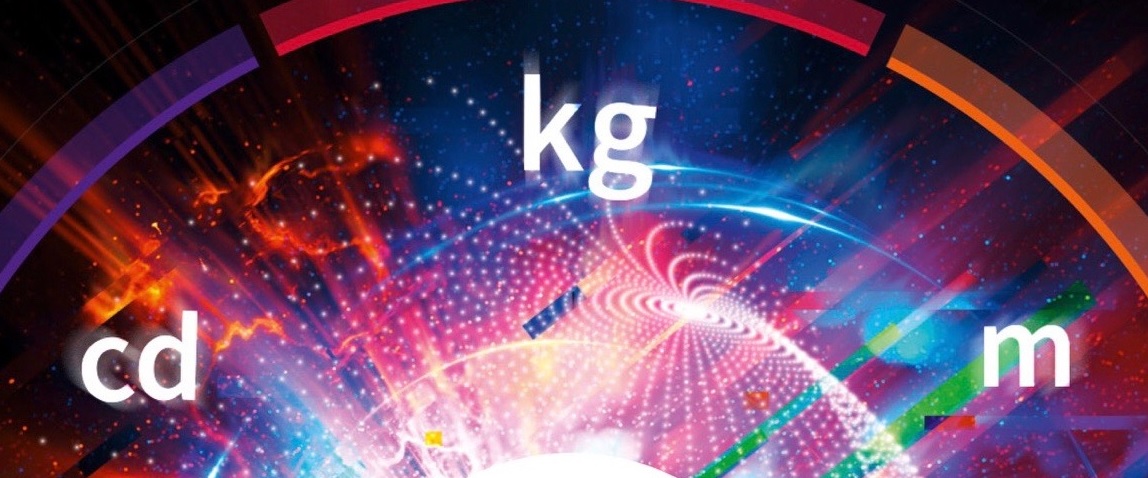Media Release - World Metrology Day 2019
National Metrology Institutes around the globe celebrated the launch of the Redefined International System of Units (SI) on World Metrology Day 2019.

A new era of Innovation with Quantum Physics
Today the international community has unlocked a new era of innovation by throwing out old ways of measuring the kilogram, ampere (electric current), kelvin (temperature) and mole (amount of substance), in favour of quantum physics. In a stroke of kiwi ingenuity, a small desktop machine created in Lower Hutt will rival a two storey, gold-plated version in the Northern Hemisphere to deliver the new measurements.
Currently to ensure measurement standards are globally aligned, countries compare physical objects, including flying our New Zealand ‘kilogram’ to Paris to measure it against the 129-year-old official ‘kilogram’ metal cylinder. But every time the official kilo prototype in Paris was handled, it could gain or shed atoms changing its mass. Over a lifetime, that standard kilo has changed. From today, instead of revolving around physical objects, scientists will use quantum physics and great engineering to define and realize the international mass standard.
The woman who cast New Zealand’s vote for the change is Dr Fleur Francois, Director of the country’s national metrology institute, the Measurements Standards Laboratory (MSL). Ms Francois says the change will open up another level of innovation.
“In a world where things are getting faster, smaller and more seamless, physicists and engineers have been frustrated by units based on physical objects that are increasingly imprecise,” says Ms Francois.
“Better precision and availability will improve technologies like GPS, autonomous mobility, nanotechnology, and spark new innovation in key industries like medicine and aeronautics.
“For me, when I think about space exploration – and who knows, we might colonise Mars one day – we’re going to need to be able to measure to greater accuracy using standards that are more universal than a single piece of metal in Paris.”
Lower Hutt invention measures up
A desktop version of a super-precise instrument has been created by the late Kiwi scientist Dr Chris Sutton and his Lower Hutt based colleagues at MSL. The Kibble Balance will produce New Zealand’s primary kilogram and could be used by many other countries.
“In the Northern Hemisphere the equipment needed to measure the new kilo cost millions and is literally the size of a two-storey building,” Dr Francois explains.
“All we really need is a device that allows us to plug in a natural constant of nature along with other variables, and from this calculate a kilogram to a high enough accuracy. The Kibble Balance is a stroke of kiwi ingenuity that does all this for us.”
The Kiwi Kibble Balance will be the only one in this part of the world, with some other Southern Hemisphere countries likely to rely on it for their measurements. Its inventor, renowned scientist Chris Sutton, and winner of one of metrology’s top international awards, sadly passed away last year before seeing the Kibble Balance realised.
MSL celebrates this milestone today in Lower Hutt with a range of industry representatives and measurement experts, as well as Commonwealth medallist Julia Ratcliffe who will announce the winner of its ‘Throwing Out the Kilo’ competition. Special presentations include Victoria University Student, Te Aomania, on Te Hītori o te Whai Inenga a te Māori (The History of the Māori Development of Measurement).
ENDS
About the SI Redefinition
- The International System of Units (SI) is structured around seven base units, with at least another 22 (such as volume) derived from these.
- Four of the seven base units (the kilogram, ampere, kelvin and the mole) have been redefined according to fixed values of natural constants. The new definitions are based on fixed numerical values of the Planck constant (h), the elementary charge (e), the Boltzmann constant (k) and the Avogadro constant (NA), as well as on three other physical constants whose numerical values are already fixed.
- Last year, member states under the Metre Convention voted in favour of these redefinitions.
Media contact:
Melanie Tuala
027 609 4502
